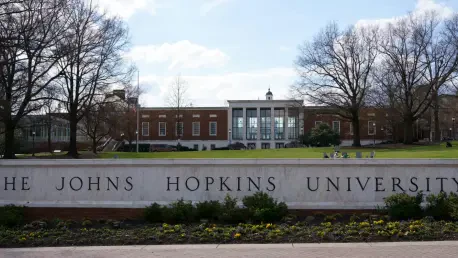Johns Hopkins University has launched an initiative to counteract the effects of reduced federal funding under the Trump administration, which threatens active research projects. In response, Johns Hopkins introduced two new grant programs—Bridge Grants and Pivot Grants—to support faculty facing delays or termination of federally supported funding. Bridge Grants provide up to $100,000 to researchers experiencing delays, though expecting future funding, while Pivot Grants offer up to $150,000 to those whose projects were abruptly halted. These grants are financed using “flexible resources,” largely derived from endowment earnings. However, the university notes these funds are insufficient to fully counteract the lost federal support.
Johns Hopkins’s approach mirrors Northwestern University’s actions, which also faced severe cuts in federal research funding. Northwestern grappled with a $790 million reduction due to claims of failing to tackle antisemitism. Consequently, it began leveraging internal resources to sustain research. Other universities affected have implemented budget freezes, halted hiring, and discontinued research activities, including clinical trials.
Universities like Johns Hopkins face vulnerabilities due to federal funding volatility, highlighted by the dissolution of the U.S. Agency for International Development, resulting in a significant $800 million funding loss. Lawsuits are ongoing against potential NIH-imposed caps on indirect research cost reimbursements, further illustrating the financial challenges research institutions face in maintaining operations amidst uncertain federal support. Johns Hopkins’s initiatives demonstrate the resilience and adaptability of academic research institutions during times of political uncertainty.









